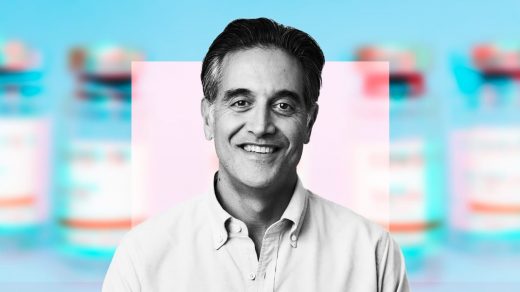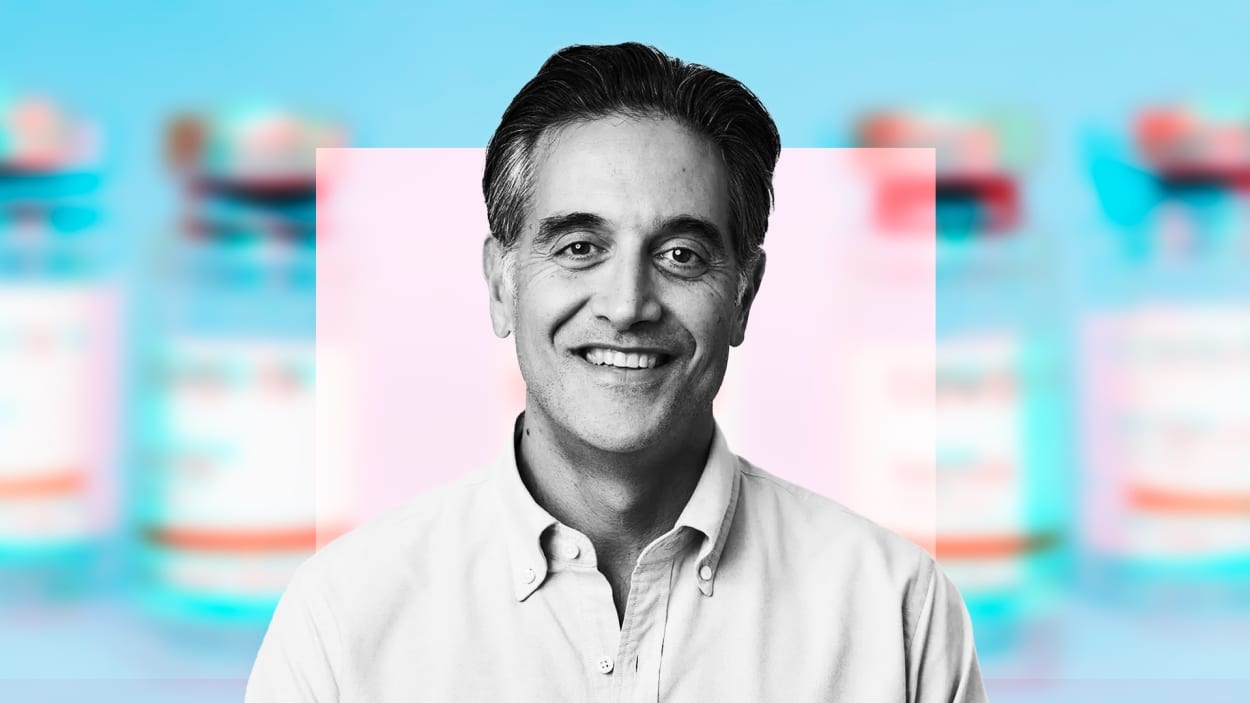Why this healthtech innovator is taking on health equity
As one of the founders of physician rating and scheduling platform Zocdoc, Cyrus Massoumi put his career focus squarely on relieving some of the pain points in the healthcare system. With Zocdoc, that meant making it easier to schedule doctors appointments and rate physicians.
In the time since leaving Zocdoc in 2015, Massoumi has dabbled in VC investing, launching the fund Humbition with Indiegogo founder Slava Rubin in 2018, and raising $30 million to invest in early-stage companies, including the podcast discovery app Podz, which was acquired by Spotify.
Now Massoumi is taking another swing at healthcare with his latest company, Dr. B, which he says is tackling health equity in a way that Zocdoc didn’t: addressing the issue of affordable care. The company started in early 2021 as a COVID-19 vaccine waitlist, helping send out more than a million alerts about vaccine availability.
In the lead-up to its launch this past August, Dr. B transformed into an affordable—and in some instances, free—way for people with COVID-19 to see a doctor via telehealth and get prescribed an antiviral medication, either Paxlovid or the generic molnupiravir. Visits cost $15, with certain patients able to see a doctor for free based on their income level. Though Dr. B doesn’t accept insurance, its consultation fee is lower than most co-pays, Massoumi says. The ultimate aim seems to be building a large enough patient base to sustain the company, either through direct payments or government subsidies.
Massoumi talked to Fast Company about Dr. B’s capabilities, ambitions, and how the healthtech space is addressing equity. (This interview has been lightly edited for clarity.)
Fast Company: With Dr. B, you’ve said you’re really focused on making it so more people can access affordable care. What’s motivating that mission?
Cyrus Massoumi: Improving access to healthcare has basically been my life’s work. I credit my mom with that, partly because she was adamant that I become a doctor, and she would tell me things like, “Being a doctor is great because you always have great access to healthcare, and access to healthcare is the most important thing that we can have in our lives.” Unfortunately for her, I did not become a doctor, but that lesson stuck with me. I remember a little bit later in my youth, I learned that a woman who was like a second mother to me didn’t have health insurance. I remember how scared I was for her if something bad were to happen to her—and that fear is the same one that over 90 million Americans who either have no health insurance or can’t afford health insurance feel every day.
It was that focus on access to healthcare that compelled me to start Zocdoc, which I think did a great job of improving access for people who could financially afford it. But one of my biggest regrets is that we didn’t do enough to help improve access for those who could not. I would tell myself that with the next healthcare company I started, I would make sure that we’re doing something that can address not just efficiency access, but also equity access to make sure that everybody is treated.
FC: Following the success of helping people find vaccines, you decided to launch Dr. B formally with a focus on prescribing COVID-19 antivirals. Why start there?
CM: We decided to start with the COVID antivirals because these can be life-saving if people get them in the right time window. What we’ve created is a way for someone who is ill and tests positive to go through an online health assessment, upload a photograph of their COVID test, and within three hours we have a board-certified physician who reviews their case. If they’re a candidate for Paxlovid or molnupiravir, the doctor will prescribe it to the pharmacy of the patient’s choosing. We do all of that for $15, and if a patient can’t afford $15, we give them the option to fill out a financial hardship form and we will treat them for free. This is the first telemedicine service that I’m aware of that’s offering to treat any American regardless of their ability to pay.
FC: Given the low cost of the service you’re providing, how are you hoping to build a sustainable model for Dr. B’s business?
CM: Because equity is so important to us, we’re building it from the ground up with a cost structure that can support treating everybody. We’ve raised $8 million to date. That means we’re likely not to spend $6.5 million on a Super Bowl ad, because with that same amount of money we could treat half a million patients for free and effectively save probably more lives than the number of people on an average football team.
With direct-to-consumer companies, the majority of money that they’re raising is for sales and marketing. One of our key innovations here is that you provide people a superior product and they know that by using it, they’re supporting everyone. If we can build a business and not spend hundreds of millions of dollars acquiring users in the same fashion that many direct-to-consumer businesses have, it can truly be disruptive in healthcare.
The big bet that I’m making is that people will want to talk about us and they’ll want to partner with us. We’re all embarrassed by the fact that we live in a country that is spending 50% more per capita than any country in the world on healthcare, and we’ve got this big gaping hole of 90 million-plus Americans who have no health insurance or can’t afford the insurance they have.
FC: You’re suing three of your former colleagues at Zocdoc, alleging that they engineered your ouster and seeking to be reinstated as Zocdoc’s CEO. If you win your case and receive your desired remedy, what happens to Dr. B?
CM: While I’m not able to comment on the specifics of ongoing litigation, I can say that given the success we are already having with Dr. B, my vision is that it will be a successful, stand-alone business for a long time to come.
FC: You’ve said that Zocdoc hasn’t gone far enough on health equity. Are there any companies you see operating right now that are sufficiently addressing the equity issue?
CM: To solve a problem as complicated as this, you need to have every part of our society coming together—both the public and private sectors—and quite frankly, there has not been enough innovation on the private sector front to really solve this problem.
If the innovation’s going to come from tech-enabled businesses, but we’re not seeing tech-enabled businesses doing everything they can to help everyone, we’re never going to solve this problem. Any business that operates in healthcare should in some way figure out how they’re trying to help everybody. It’s almost a moral obligation. So my hope is that we will be able to demonstrate that we can build a very successful, large, sustainable company while doing the right thing in healthcare.
FC: What do you make of the current landscape for startups?
CM: I started ZocDoc in a time not unlike the environment that we’re heading into. It was worse, actually. We started in the midst of the [2008] financial crisis. Part of what made Zocdoc successful in the earliest days was that we were able to assemble amazing talent onto our team . . . because there weren’t many other opportunities for them to go out and have an idea on a napkin and get funding. What makes a transformational company is when you can take a number of individuals who each in their own right could build something, and you have them work together.
The fact that the capital markets are a bit more measured than they have been for the past half decade actually makes it a great—even a better—time to start a company. Because I would submit to you that talent trumps capital in terms of your ability to get something done that’s really transformational. It’s the most important thing. I mean, Google really got its legs after the internet boom. It wasn’t even part of the internet boom.
The next wave of great companies are going to be built now. More specifically, as it relates to the product and service that we are offering, being the most efficient, lowest-cost option heading into an economically turbulent time has also proven to be a very effective business strategy.
FC: Is your hope to expand beyond COVID-19 at a certain point?
CM: Absolutely. We think that there are a number of medical specialties and a number of treatments where this type of telemedicine can really be leveraged to more efficiently and inexpensively get patients the care that they need. We have a network of board-certified physicians in 41 states, and we’ll be scaling up with highly skilled and talented medical professionals who realize that this is the way to expand access to healthcare for everyone, and who share our vision for making sure that [everyone can access] any critical medication they need for their everyday lives.
(68)



